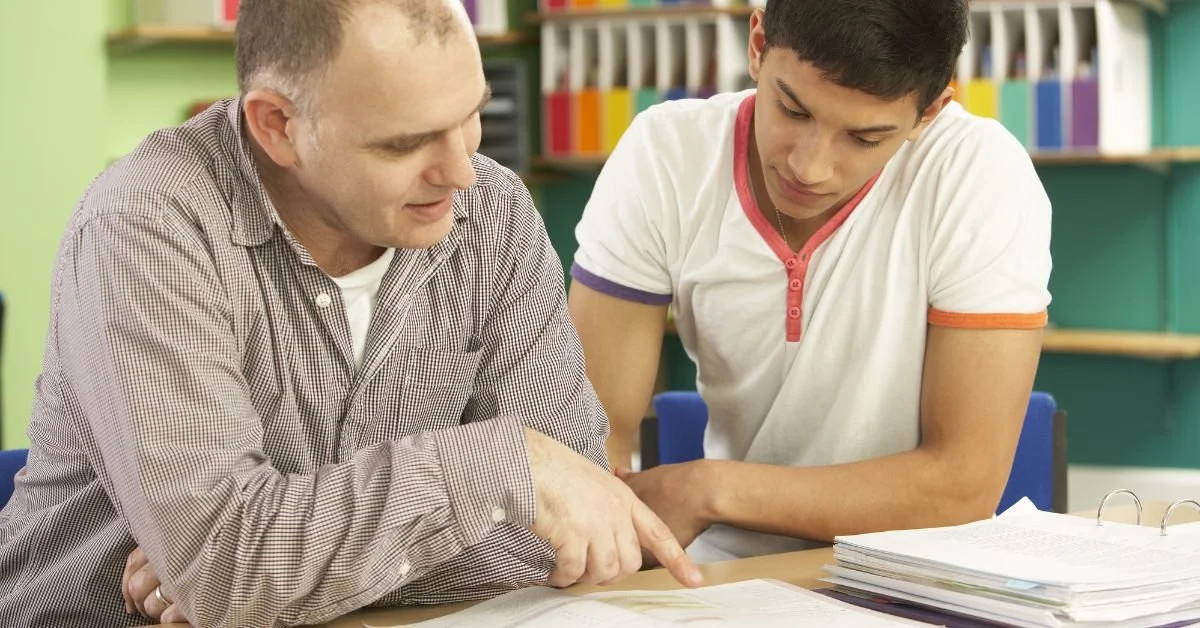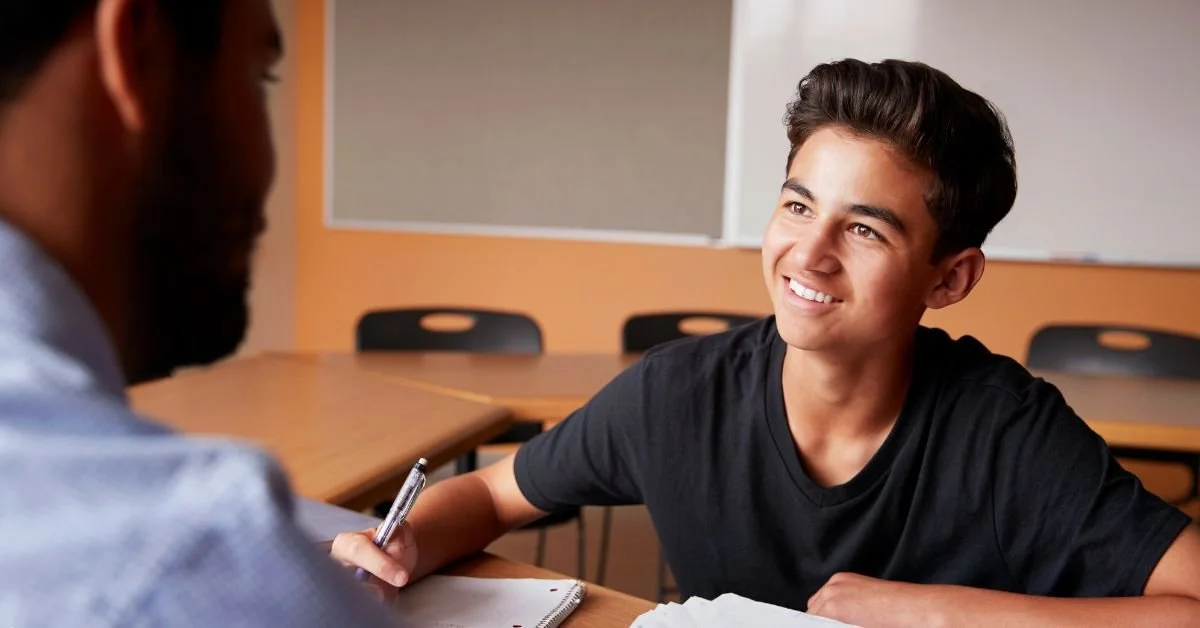How Personalized Tutoring Can Boost Confidence and Academic Performance
Personalized tutoring refers to a tailored educational approach where teaching methods, pace, and content are adjusted to fit the unique needs of each student. Unlike standard classroom settings, where instruction is uniform, personalized tutoring focuses on the individual learner's strengths and weaknesses. This customized approach allows tutors to delve deeply into the student's specific challenges and craft lessons that resonate more effectively with them. It also improves the educational experience and promotes greater comprehension and retention of the subject by catering to each student's distinct learning preferences and style.
Boost Academic Performance with Tutoring
Addressing Individual Learning Gaps
Tutors assess where students may be struggling, whether it's with fundamental concepts in mathematics or advanced topics in science, and tailor their sessions to target these specific areas. This targeted approach ensures that students receive the precise help they need, which can be overlooked in a general classroom setting. As a result, students gain a clearer understanding of subjects and improve their academic foundation, making personalized tutoring services crucial for students needing extra help.
Customized Lessons Based on Learning Styles
Every student has a unique way of learning, and effective tutoring must adapt to these differences. Whether a student is a visual learner, prefers auditory instruction, or learns best through hands-on activities, tutors can customize their lessons to match these preferences. This customization not only makes learning more enjoyable but also more effective, as students engage with materials in ways that resonate best with them. Tailored lessons can boost comprehension and retention, leading to better academic results.
Progressing at the Student's Own Pace
One significant advantage of one-on-one tutoring is the ability to progress at the student’s own pace. Recognizing and adapting to various learning styles—be it visual, auditory, kinesthetic, or a combination—enables tutors to craft lessons that are not only engaging but also highly effective in promoting comprehension and retention. Visual learners, for instance, benefit from diagrams, charts, and videos that make abstract concepts more tangible. Auditory learners, on the other hand, absorb information better through listening, benefiting from lectures, discussions, and reading aloud. Kinesthetic learners, who learn best through action, gain more when lessons involve physical activities or hands-on experiments. By leveraging these styles, tutors can create a dynamic learning environment that caters to individual preferences and strengths.
Further extending the concept of tailored education, integrating technology can enhance the customization of lessons to suit diverse learning styles. Educational technologies such as virtual reality (VR), augmented reality (AR), and interactive apps can transform traditional learning methods, providing immersive and interactive experiences that cater to all types of learners. For example, VR can place a kinesthetic learner in a virtual lab where they can conduct experiments, while AR can help a visual learner see 3D maps of historical battles unfold in real time. Adaptive learning software that adjusts content based on a student’s pace and understanding can significantly enhance personalized learning experiences. This software uses algorithms to analyze a student's interactions and then adjusts the difficulty level or introduces new concepts accordingly, ensuring that each lesson is at the right level of challenge for the student.
Mastering Difficult Concepts
To help students understand difficult subjects, tutors might employ a variety of teaching techniques, such as breaking down large concepts into smaller, more accessible chunks or explaining difficult concepts with analogies from everyday life. Specialized focus helps students overcome hurdles associated with tough subjects, providing a deep and lasting understanding.
How Personalized Tutoring Enhances Confidence
Creating a Safe Space for Asking Questions
Without the pressure of peers and the time constraints of a large group, students are more inclined to voice their thoughts and concerns. This open dialogue fosters a deep understanding of the material and builds confidence as students learn to express their ideas clearly and seek clarification whenever needed.
Engage Actively with the Learning Material: With the absence of peer pressure and the focused attention of a tutor, learners are encouraged to immerse themselves in the subject at their own pace. The tutor can adapt the lessons based on the student's engagement levels, using interactive techniques, real-world examples, or tailored exercises that align with the student’s interests. Active participation is crucial because it enhances retention, encourages critical thinking, and makes learning a more enjoyable and rewarding experience. Students tend to develop a stronger grasp of concepts, improving their overall academic performance.
Express Confusion or Misunderstanding Without Fear: Unlike a typical classroom environment where students may feel hesitant to ask questions due to social pressures, a one-on-one setting ensures that the tutor can address the student's concerns directly and with patience. This transparency is essential for learning, as misunderstandings can be identified and corrected promptly. Tutors can take the time to explain complex topics in multiple ways, ensuring that the student fully understands before moving forward. This process builds trust between the student and the tutor, encouraging ongoing open communication.
Explore Subjects More Deeply: Students have the opportunity to dive deeper into subjects that capture their interest, guided by a tutor who can expand on topics beyond the standard curriculum. This freedom to explore is particularly beneficial for students with genuine curiosity or those who wish to specialize in certain areas. A tutor can introduce advanced materials, engage in thought-provoking discussions, or propose projects that challenge the student’s understanding. This deeper exploration not only enriches the student’s knowledge but also fosters a love for learning, as students discover the joy of studying topics in greater depth without the constraints of a rigid academic schedule.
The combination of these factors—active engagement, freedom to express confusion, and the ability to explore topics thoroughly—makes personalized tutoring a highly effective learning method. Students benefit from a tailored educational experience that focuses on their unique needs, ensuring that they gain both knowledge and confidence in their abilities.
Building Confidence
Tutors in personalized tutoring programs play a key role in helping students tackle and overcome academic challenges. By celebrating small victories and setting achievable goals, tutors help students build confidence gradually. Each successful step in understanding a concept or improving a skill reinforces the student's belief in their abilities, encouraging them to take on more challenging tasks. Such a supportive cycle fosters a sense of accomplishment and self-worth that extends beyond the tutoring sessions.
Encouraging a Growth Mindset
Tutoring for confidence involves instilling a growth mindset in students, where they learn to view challenges as opportunities for growth rather than obstacles. Tutors emphasize the value of effort and perseverance, teaching students that intelligence and capabilities can expand with practice. This perspective helps reduce the fear of failure and motivates students to persist despite difficulties, driving meaningful progress in their academic and personal development.
Reducing Academic Anxiety
The dedicated support provided in one-on-one tutoring situations significantly reduces students’ academic anxiety. Tutors can promptly address not just the academic struggles but also the emotional stressors associated with these challenges. By adapting their teaching methods to reduce stress and anxiety, tutors provide a calm learning atmosphere that enables students to focus better and perform to their best abilities. Anxiety reduction is crucial for students who might otherwise feel overwhelmed by the pressures of traditional educational environments.
Key Benefits of Personalized Tutoring Services
Undivided Attention
In this focused setting, tutors can fully devote their resources and energy to a single student, crafting a learning experience that is entirely based on that student's particular needs and goals. This attention helps identify and strengthen areas where the student might be struggling, ensures a deeper understanding of content, and accelerates learning efficiency by directly addressing the student's questions and concerns without the distraction of managing a larger group.
Immediate Feedback and Clarification
Students receive real-time responses to their queries and instant clarification on errors, which helps them correct mistakes before misconceptions can solidify. This immediate loop of feedback and correction is crucial for effective learning, as it allows students to reflect on their thought processes and understand the material more profoundly. The tutor's prompt input facilitates a more dynamic and responsive educational experience, enhancing the learning journey.
Flexibility in Scheduling Sessions
One of the less discussed yet highly appreciated benefits of tutoring is the flexibility it offers in scheduling sessions. It allows for more consistent learning, as sessions can be rescheduled to accommodate sudden changes or emergencies, ensuring that no learning momentum is lost.
Custom-Tailored Session Times: One of the most appreciated aspects of personalized tutoring is the ability to set custom session times that align with a student’s unique schedule. This flexibility is especially important for students balancing numerous extracurricular activities, part-time jobs, or family commitments. By scheduling sessions during the student’s most productive periods, tutors can optimize learning outcomes. For example, a student who feels more energized in the evening can schedule tutoring sessions then, ensuring that they are fully engaged. Adaptability allows both the tutor and the student to make the most out of each lesson, focusing on the student’s needs when they are most receptive.
Adaptability to Sudden Changes: Life is unpredictable, and sometimes students face unexpected events that disrupt their regular schedules. Personalized tutoring offers the significant advantage of adaptability, allowing sessions to be rescheduled without stress or penalties. Unlike traditional classroom settings, where missing a class can mean falling behind, tutoring sessions can be easily moved to another time. Whether it's an emergency, illness, or a last-minute extracurricular commitment, students can adjust their learning schedule without worrying about missing important material.
Optimal Frequency of Sessions: During periods of increased academic pressure, such as exam season, students may opt for more frequent tutoring sessions to ensure thorough preparation. Conversely, during less intense times, they can reduce the number of sessions, maintaining flexibility without overwhelming their schedule. This ability to adjust the frequency provides a balanced approach to learning, helping students manage their time and avoid burnout. It also allows tutors to tailor their teaching strategies more effectively, focusing on intense study when necessary and offering more relaxed learning sessions when appropriate.
Students are empowered to choose their optimal learning times, adjust their schedules to unforeseen changes, and regulate the frequency of their sessions, all while receiving personalized attention. This adaptability not only supports academic success but also ensures that students maintain a healthy balance between their studies and other life commitments.
Improve Study Skills with Tutoring
Developing Better Study Habits
Tutoring services play a crucial role in developing effective study habits. They introduce systematic approaches to learning, which are crucial for students who struggle to find effective study methods on their own. Tutors help students structure their study sessions by teaching them how to break down complex subjects into manageable segments, thus making the learning process less overwhelming and more achievable. They also emphasize the importance of setting realistic goals and sticking to a consistent study schedule, which can significantly enhance a student’s ability to focus and absorb information.
The long-term benefits of these enhanced study habits extend beyond academic success. As students learn to organize, prioritize, and critically assess information, they develop transferable skills that are highly valued in the workplace. These skills include time management, problem-solving, and the ability to learn independently—attributes that are crucial in any professional setting. Furthermore, the confidence gained from improved academic performance fosters a positive attitude towards lifelong learning, which is essential in today's rapidly changing world.
Improving Note-Taking and Exam Preparation Skills
Private tutoring benefits students by enhancing their note-taking and skills for exam preparation. They also teach various note-taking methods that align with the student's learning style, helping them capture essential information and organize their notes effectively. Additionally, tutors provide specific strategies for exam preparation, including practice tests and review techniques that improve recall and understanding. These skills are vital for academic success and are particularly beneficial during high-stakes testing situations.
The transformative power of personalized tutoring is most evident in its ability to boost both academic confidence and competence. Students who engage in private high school tutors experience not just a surge in their grades but an overall enhancement in their approach to learning. This is characterized by increased self-assurance, a proactive attitude toward tackling complex subjects, and a visible improvement in critical thinking and problem-solving skills. Such developments are pivotal as they equip students with the confidence to handle future academic challenges and opportunities with a greater sense of control and preparedness.



